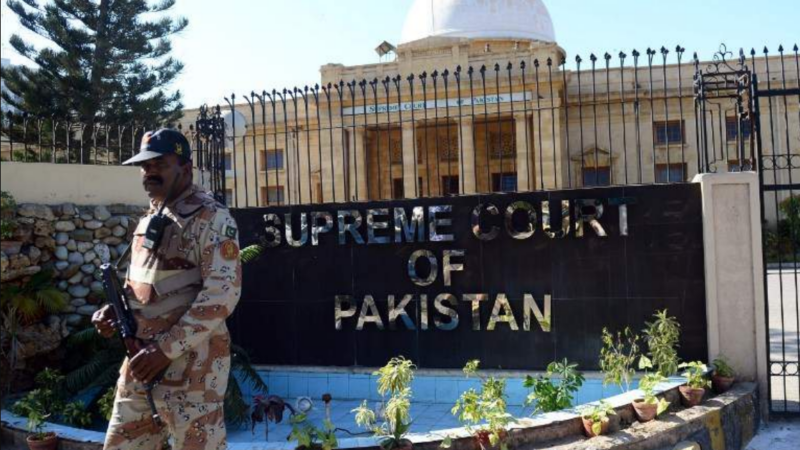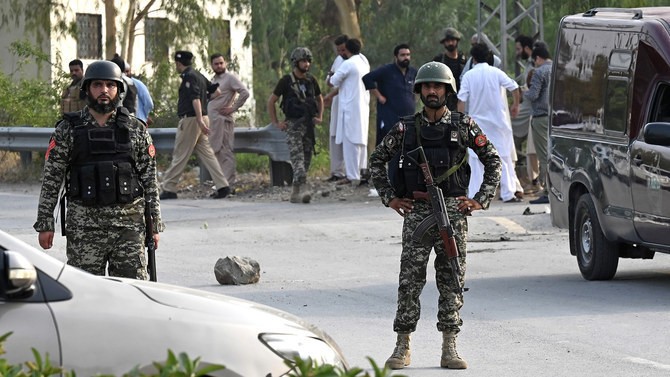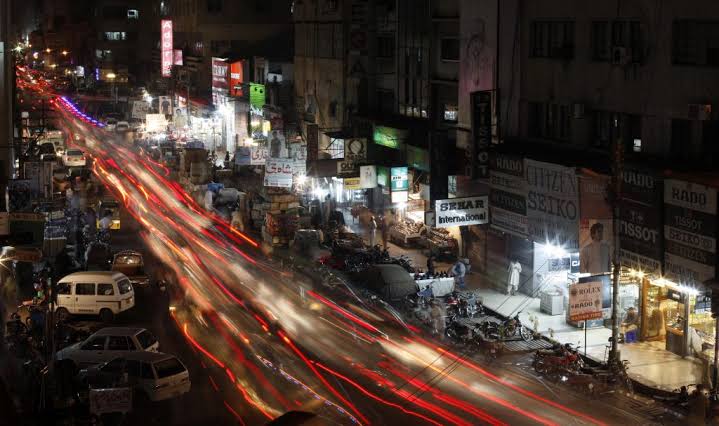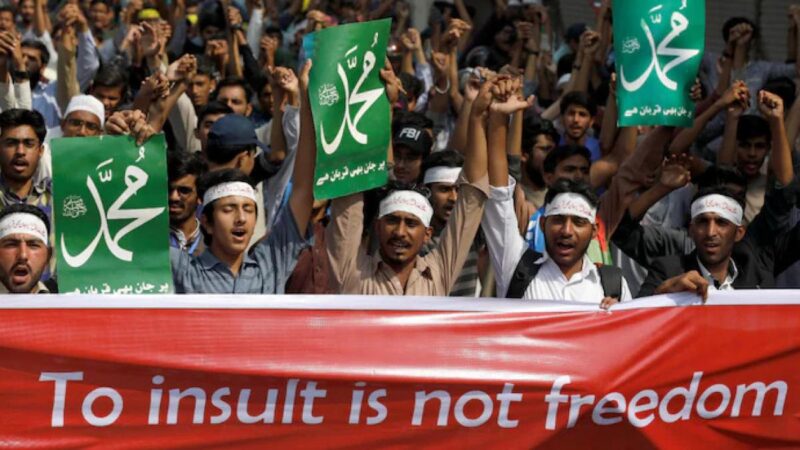Pakistan under civil war

Banned outfit Tehreek-e-Labbaik Pakistan’s (TLP) supporters are creating an ugly and deadly agitation.
On Monday, different religious parties called for a general strike across the country to show solidarity with the TLP. The strike call came after deadly clashes between the TLP and law-enforcement agencies in Lahore on Sunday. Eleven police officers including the deputy superintendent of police were taken hostage by the TLP mob, while hundreds of protesters were reported to be wounded, some fatally.
The police officers were released after the government and religious scholars held talks with TLP leader Saad Hussain Rizvi, who is imprisoned in Kot Lakhpat Jail in Lahore.
On Monday, traders kept their businesses closed to observe the strike call given by the religious leaders. Such was the tension that Prime Minister Imran Khan had to address the nation on television. Other than hitting his political opponents unnecessarily, Khan’s speech was good, as he correctly pointed out that expelling the French ambassador from the country would only result in economic and diplomatic losses for Pakistan.
However, TLP supporters and the majority of the population with right-wing conservative views now see Khan as part of the problem. So it is likely that while his televised address may have won him the sympathies of his vote bank, it will not solve the deadlock between the TLP and the government.
In fact, the poor handling of the matter is evident from the fact that the government hurriedly imposed a ban on the TLP under anti-terrorism law but now it is trying to make a deal with the same proscribed outfit through negotiation.
At the time of writing this article, the Faizabad interchange that connects Islamabad and Rawalpindi has been sealed along with different points in Rawalpindi amid the protests calling for expulsion of the French ambassador on Tuesday.
Since many religious leaders like Mufti Muneeb-ur-Rehman, Maulana Fazal-ur-Rehman, and Siraj-ul-Haq have shown solidarity with the TLP, it is becoming more and more difficult for the government to sustain pressure.
Whether the government will be able to sustain the pressure without making someone in the high ranks a scapegoat remains to be seen. However, the situation has done further damage to Pakistan’s global reputation.
Imran Khan hinted at the involvement of external hands in running organized campaigns to promote religious violence, but that does not change the fact that it was his own government that first agreed to the illogical demand by the TLP to expel the French ambassador over that country’s defending the right of Charlie Hebdo magazine to republish cartoons depicting the Prophet Muhammad.
No external hand should have been able to exploit the situation if the government had not made an agreement with the TLP in November last year. On the other hand, the TLP has played its cards well, and despite killing four police officers and injuring around 800 of them, it is playing the victim card.
The casualties of three TLP workers have created a sympathy factor among the religious-minded segment of Pakistani society, and thanks to the self-destructive step of a blanket ban on mainstream media by the government regarding the TLP protest, the extremist outfit is winning the war of perception through social-media platforms.
Hundreds of videos are being circulated via WhatsApp, Facebook and Twitter in which TLP protesters are shown being victimize by the police crackdown. Other religious leaders, especially Fazal, suddenly jumping in to sympathize with the TLP means the government will have to a deal to save itself from further pressure.
While the country is facing a dangerous third wave of Covid-19, the focus of the government and the entire nation is not on acquiring vaccines or carrying out procedures to remain safe from the pandemic, but on the French ambassador and the issue of blasphemy.
This perfectly defines the collective thought of a country that prefers to live in self-denial and where religion is used to hatch conspiracies either to destabilize governments or to fulfill the strategic interests of the deep state.
The rise of outfits like the TLP is not a mystery, and even a layman can tell which powerful quarter always gives birth to such extremist outfits. Since the Imran Khan government was brought to power by a manufactured political discourse, it can never actually pin the responsibility on those who are responsible for the rise of the TLP.
The only way to solve this problem once and for all is to set up a judicial commission headed by the likes of Qazi Faez Isa to find out who helped the TLP grow popular enough to threaten the country’s governments. Anything else will only be eyewash, which will mean that even if the current protests are somehow stopped through negotiations, there will always be a chance that in the future religious extremists will be supported by the invisible forces to exploit religious sentiments.
There are millions of people who find strength in mobs and holy slogans on protecting the sanctity of religious persons. These are the people who need to be taught a balanced view of the world, and economic improvement bringing some relief to their lives may well lessen the extremism among them.
For now, we have to wait and see how the negotiations between the government and the TLP proceed, but from the political angle, Saad Hussain Rizvi is the winner so far. Only time will tell how much destruction he will spread through extremism and religious exploitation.
Perhaps instead of making a popular speech, Imran Khan should have focused on how religious sloganeering only adds problems for Pakistan. He said in his live address to the nation that his government and the TLP have the same ideology but only differ in how they practice it. That will only strengthen the extremist mindset in the country.
He should have tried to explain to the masses that no one in the contemporary world is willing to give space to religious extremism.
He should have urged the masses to focus on getting a good education and to seek good economic opportunities first to strengthen the country, as only once Pakistan becomes self-reliant and not dependent on aid and loans from global superpowers and international financial institutions, it will have the credibility to register its protest with a particular country on the blasphemy issue.
Until this happens, this religious rhetoric will only result in Pakistan remaining at war with itself – a war that has no logic behind it and that has only kept the country in the dark ages.
Not even major Muslim states such as Saudi Arabia and Turkey have expelled diplomats over the blasphemy issue, nor have they cut diplomatic ties with France. How can Pakistan, which is already facing economic and political turmoil, afford to expel diplomats or to cut ties with the French government?
This is what the TLP wants, and for sure neither Imran Khan nor his government want this. So Khan and the TLP in fact do not have the same ideology, and it would have been better if had said so bravely without worrying about the political fallout.
There are many peaceful ways to register one’s dislike for a particular act, but burning properties of one’s own country, killing and wounding police and challenging the government are not tactics that will bring any benefit for the country. Only the extremist outfits like TLP will benefit from this hatemongering along with a few of its backers in the invisible quarters in the short term.
Right now the masses await the outcome of the negotiations between the government and the TLP while the country is again pushed into war against its own self, not against France or any other country.
The alliance between the faith merchants and the invisible forces seems more powerful than the entire political mainstream of the country, and this remains the dilemma of a country that is enslaved by collective ignorance.
Imad Zafar is a journalist and columnist/commentator for newspapers. He is associated with TV channels, radio, newspapers, news agencies, and political, policy and media related think-tanks.






